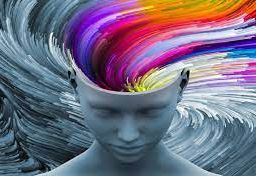
Vision Myths vs. Facts: Can Carrots Really Improve Your Eyesight?
Are you still wary of reading in the dark or sitting too close to the TV because you believe it could harm your vision? The eyes are a crucial sense, yet there are numerous misconceptions surrounding their care. Let’s put those age-old warnings to rest as we debunk these common myths and uncover the real factors that impact your eye health.

Clearing Up 10 Common VISION MYTHS Misconceptions
Myth 1: Reading in the Dark Damages Your Vision
Fact: While reading in dim light can strain your eyes and cause temporary discomfort, it doesn’t cause permanent damage to your vision. Our eyes possess an incredible ability to adapt to different lighting conditions. However, prolonged reading in poor light can lead to eye fatigue, headaches, and temporary blurred vision. To reduce eye strain, ensure adequate lighting when engaging in close-up tasks like reading.
Myth 2: Sitting Too Close to the TV Harms Your Vision
Fact: Contrary to popular belief, sitting very close to the TV won’t permanently harm your eyes. Children often sit closer to the TV because they have a shorter focal length and are less concerned with comfort. The misconception that sitting too close to the TV ruins eyesight likely stems from the observation that children with poor eyesight tend to sit closer. However, if your child habitually sits too close to the TV, it might indicate an undiagnosed vision problem, but it won’t cause one. Sitting close to the TV does not harm your eyesight. However, it may cause temporary eye strain and discomfort. The American Academy of Ophthalmology recommends the “20-20-20 rule”: take a 20-second break every 20 minutes and focus on something 20 feet away to alleviate strain.

Myth 3: Carrots Alone Improve Vision
Fact: Carrots contain beta-carotene, which supports eye health, but they do not magically enhance vision. A balanced diet rich in various nutrients, including vitamins A, C, E, and zinc, is important for maintaining good vision.
Myth 4: Wearing Glasses Weakens Your Eyes
Fact: Glasses or contact lenses correct refractive errors and do not weaken your eyes. In fact, wearing the right prescription can alleviate strain and maintain optimal vision. Neglecting vision correction can lead to eye strain and discomfort.
Myth 5: Using Computers Leads to Permanent Eye Damage
Fact: Prolonged screen time can cause digital eye strain, but it does not cause permanent damage. Following the 20-20-20 rule, adjusting screen settings, and ensuring proper lighting can help minimize strain.

Myth 6: Rubbing Eyes Causes Vision to Decline
Fact: Occasional eye rubbing does not harm your eyesight. However, excessive rubbing due to allergies or irritation can worsen underlying conditions. It is best to address the root cause rather than excessively rub your eyes.
Myth 7: Blue Light from Screens Causes Blindness
Fact: While prolonged exposure to blue light can disrupt sleep and cause eye strain, there is no evidence linking it to blindness. Taking measures to block blue light can reduce discomfort, but moderation and proper sleep hygiene are key.
Myth 8: Eye Exercises Can Eliminate the Need for Glasses
Fact: Eye exercises may improve focus and coordination, but they cannot reverse conditions that require glasses. Nearsightedness, farsightedness, and astigmatism are caused by structural issues, not muscle weakness.
Myth 9: Avoiding Eye Makeup Preserves Vision
Fact: Using eye makeup correctly does not affect your eyesight. However, sharing makeup, improper application, or using expired products can lead to eye infections. Practicing good hygiene and regularly replacing makeup are important.
Myth 10: Regular Eye Exams Are Unnecessary
Fact: Regular eye exams are crucial for detecting potential issues early, even if you have good vision. Many eye conditions, such as glaucoma, develop gradually without noticeable symptoms. Routine exams can safeguard your eye health.

Factors Affecting Vision:
1. Genetics: Your risk of vision problems, such as nearsightedness, farsightedness, and astigmatism, is influenced by your family history. If your parents have vision issues, you’re more likely to develop them as well.
2. Age: As we age, our eyes’ ability to focus on close objects naturally declines (presbyopia). This is a normal part of the aging process and not a consequence of reading in the dark or sitting close to screens.
3. Screen Time: Excessive screen time can lead to digital eye strain, characterized by symptoms like dry eyes, headaches, and blurred vision. Mitigate this by following the 20-20-20 rule: every 20 minutes, take a 20-second break to look at something 20 feet away.
4. UV Exposure: Prolonged exposure to ultraviolet (UV) rays from the sun increases the risk of cataracts and age-related macular degeneration. Protect your eyes by wearing sunglasses with UV protection.
5. Nutrition: A well-balanced diet rich in nutrients like vitamin A, C, and E, zinc, and omega-3 fatty acids supports overall vision health.
6. Regular Eye Exams: Regular eye check-ups are essential for early detection of eye problems and timely intervention.

Reading in the dark and sitting too close to the TV are common vision myths that lack scientific evidence. While they may cause temporary discomfort, they do not permanently damage your eyesight. Instead, factors such as genetics, age, screen time, UV exposure, nutrition, and regular eye exams play crucial roles in maintaining good eye health. To safeguard your vision, adopt healthy eye care practices and consult a professional if you experience persistent eye issues.
Disclaimer: The information provided in this content is for general informational purposes only. It is not intended as medical or healthcare advice, diagnosis, or treatment. Always seek the advice of a qualified healthcare professional with any questions you may have regarding a medical condition or healthcare decisions.
















